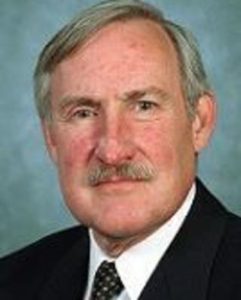Dr. Fred Rotgers Addresses NJ-ACT on New Directions in Treating ‘Addictive’ Behaviors

Part 1: 6 Myths About Addiction
By Lynn Mollick
In his June 9, 2019 workshop for NJ-ACT, Dr. Frederick Rotgers, Psy.D. explained that there is little agreement about the definition of “addiction.” The term refers to chemical substances – e.g. alcohol, opiods, cannabis – as well as to behavioral excesses – e.g. gambling, shopping, sexual activity. Dr. Rotgers described 6 myths about addictions and their treatment:
Myth #1: Alcoholism is a chronic, unremitting illness. Substance abuse disorders have the highest rates of remission of all DSM disorders. Cannabis and cocaine remit sooner, and alcohol and nicotine later, but across the lifespan, all four eventually reach almost 75% remission, with or without treatment. (Because opioid addiction is a new phenomenon, no data exists.)
Myth #2: Substance abuse is a brain disease. The brains of abusers are different from the brains of non-abusers. But it is not clear if brain differences cause abuse or abuse causes brain differences. In addition, brain differences do not mean that dysfunctional neurobiology drives addiction. Many factors affect brain chemistry: behavior, poverty, stress, exercise, expectation.
Asserting that a brain disease causes addiction stigmatizes abusers and implies that abusers cannot control their substance use. It also suggests that biological interventions are the most important when decades of research have demonstrated the effectiveness of psychosocial approaches, especially CBT and self-help.
Myth #3: Abstinence is the only appropriate goal for substance abuse treatment. The United States is the only country in the world that defines successful treatment as abstinence only. Controlled drinking is an effective treatment for some abusers. Many abusers eventually become occasional, non-problematic users.
Myth #4: When addiction is present, it must be treated successfully before psychological problems, such as anxiety or depression, can be treated. Co-morbidity predicts greater likelihood of relapse, but there is no reason to require patients to be abstinent before treating co-existing disorders. When abuse and a psychological disorder co occur, treat the disorder that occurred first; you may not need to treat the disorder that emerged later.
Myth #5: Twelve Step programs (AA, NA, OA) are the only treatments that works. AA is effective for 10% of alcohol abusers. Other abusers eventually find different paths to non-problem behavior.
Myth #6: Medication is not helpful for substance abusers. On the contrary, there are many effective options:
Alcohol: Antabuse (disulfiram), naltrexone (Revia, Vivitrol), Campral (acomprosate)
Opioids: Suboxone (buprenorphine and naloxone), naltrexone, methadone. Prescribers must obtain specialized training for Suboxone and methadone.
Drinking while taking anti-depressants causes higher blood alcohol levels, and alcohol diminishes the effects of antidepressants. Also note that these medications are not effective for addictions of behavioral excess.